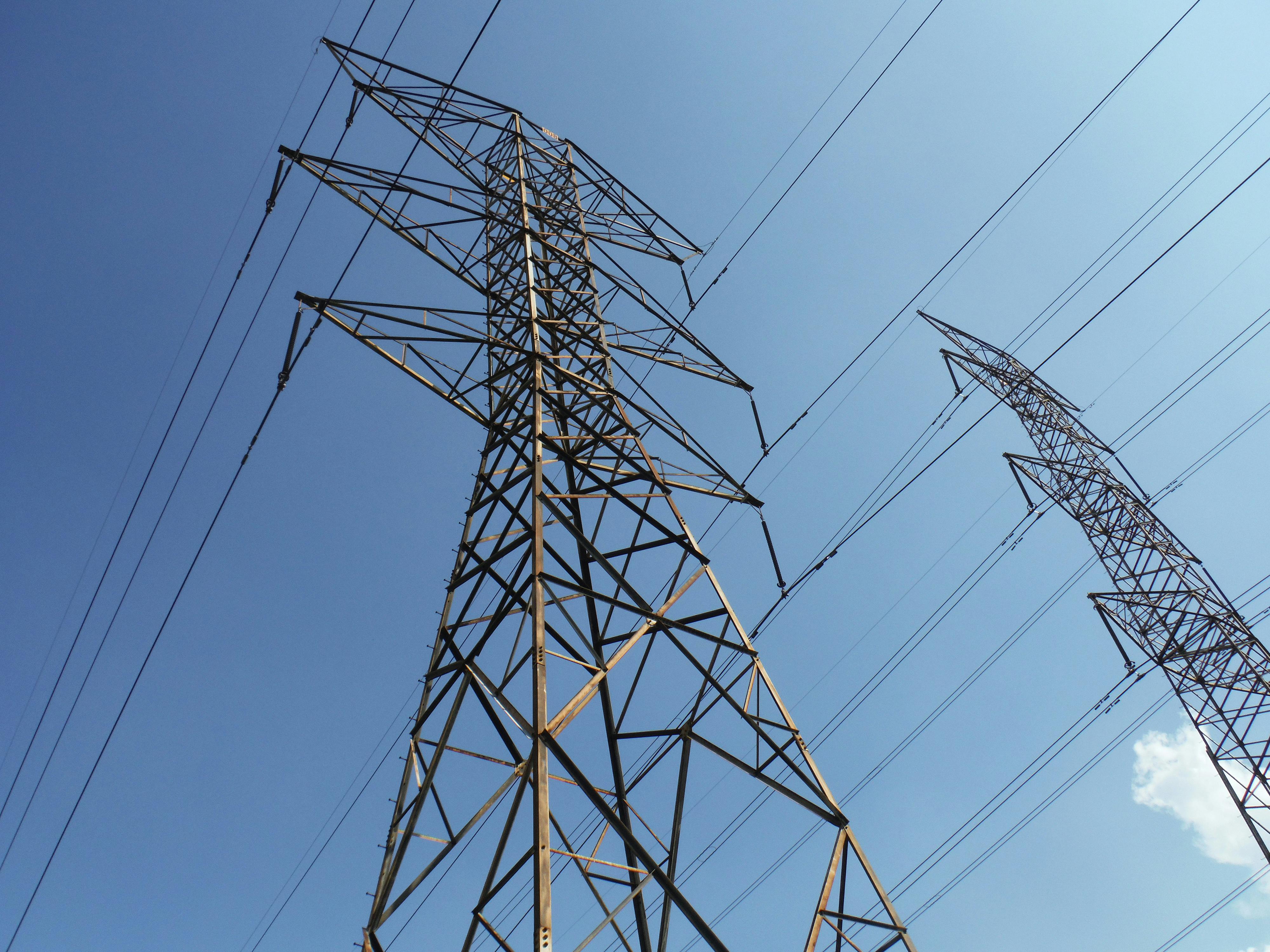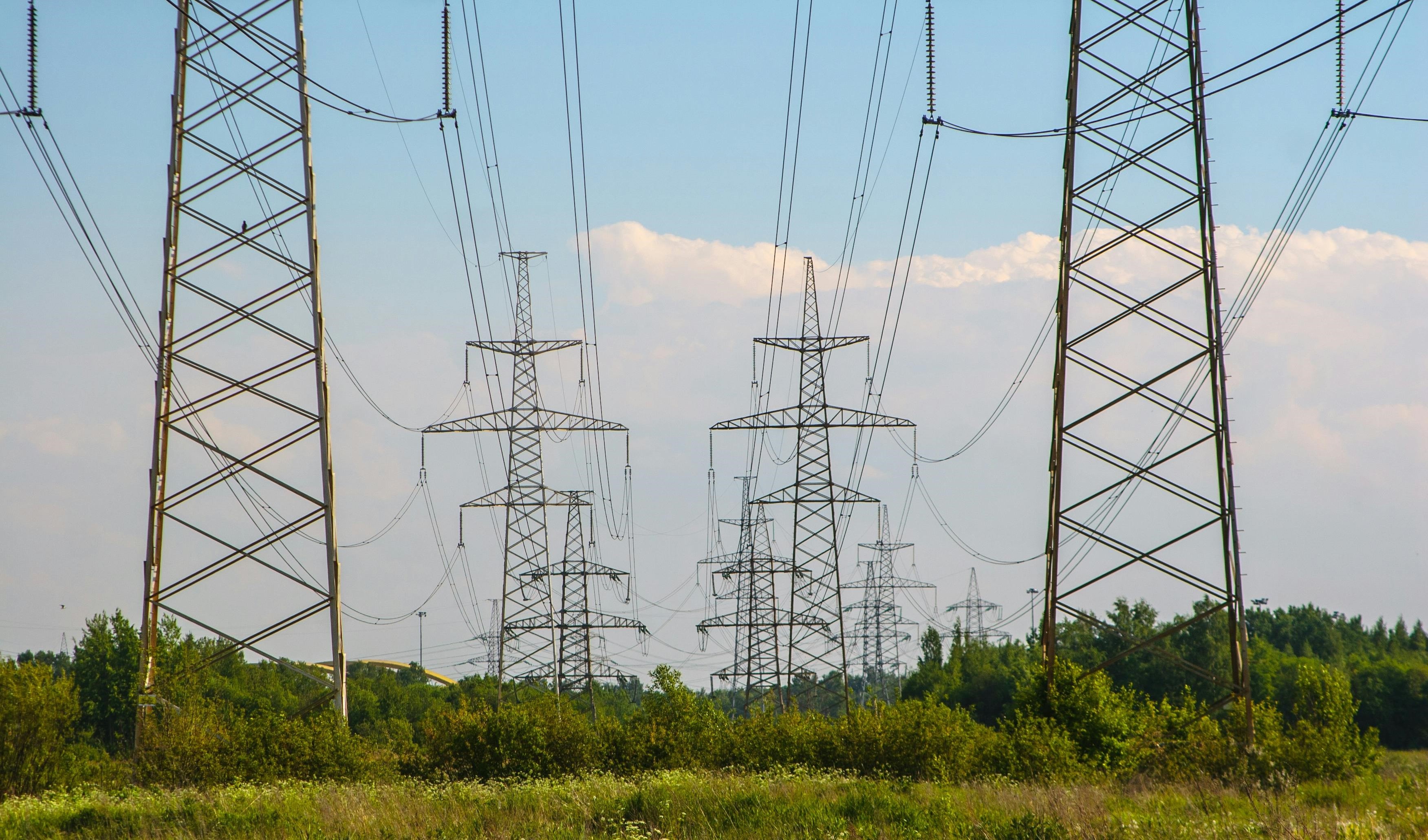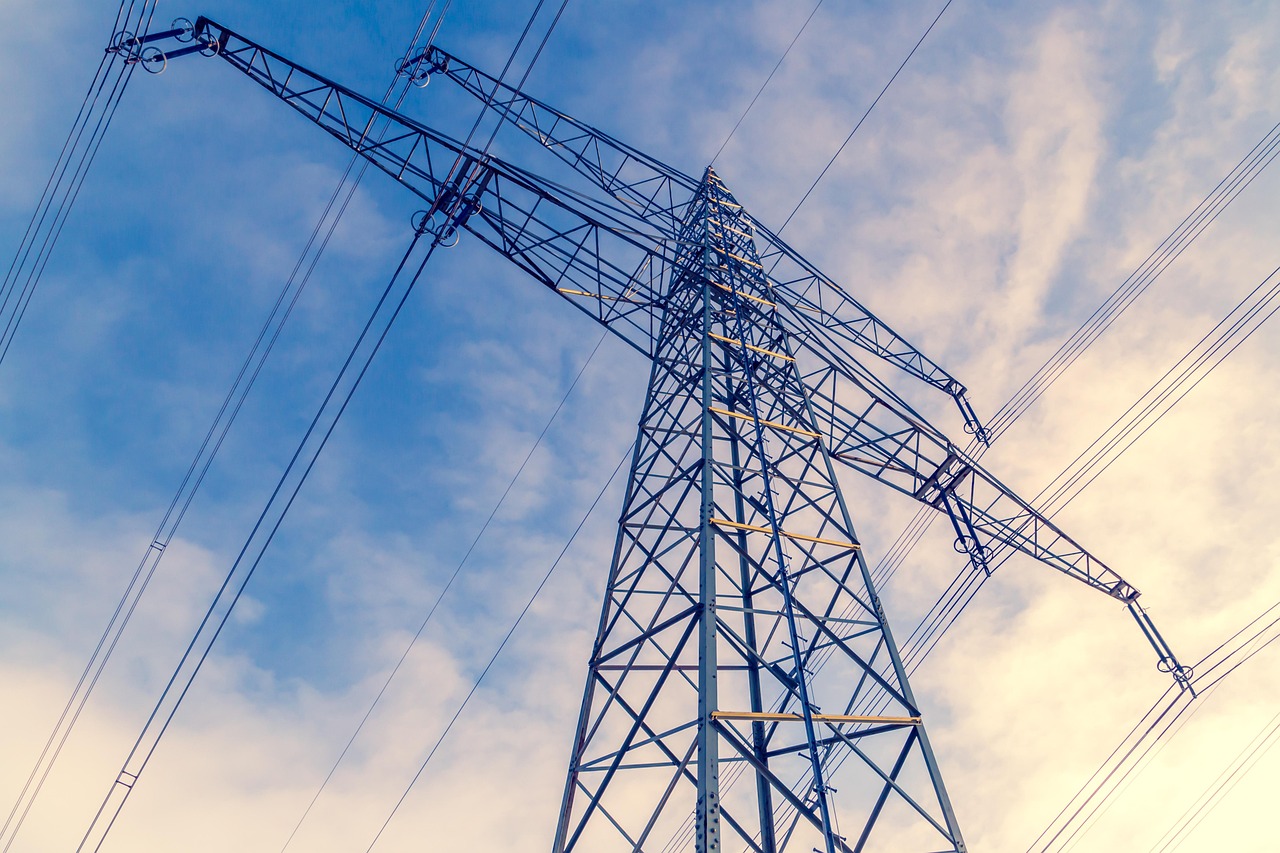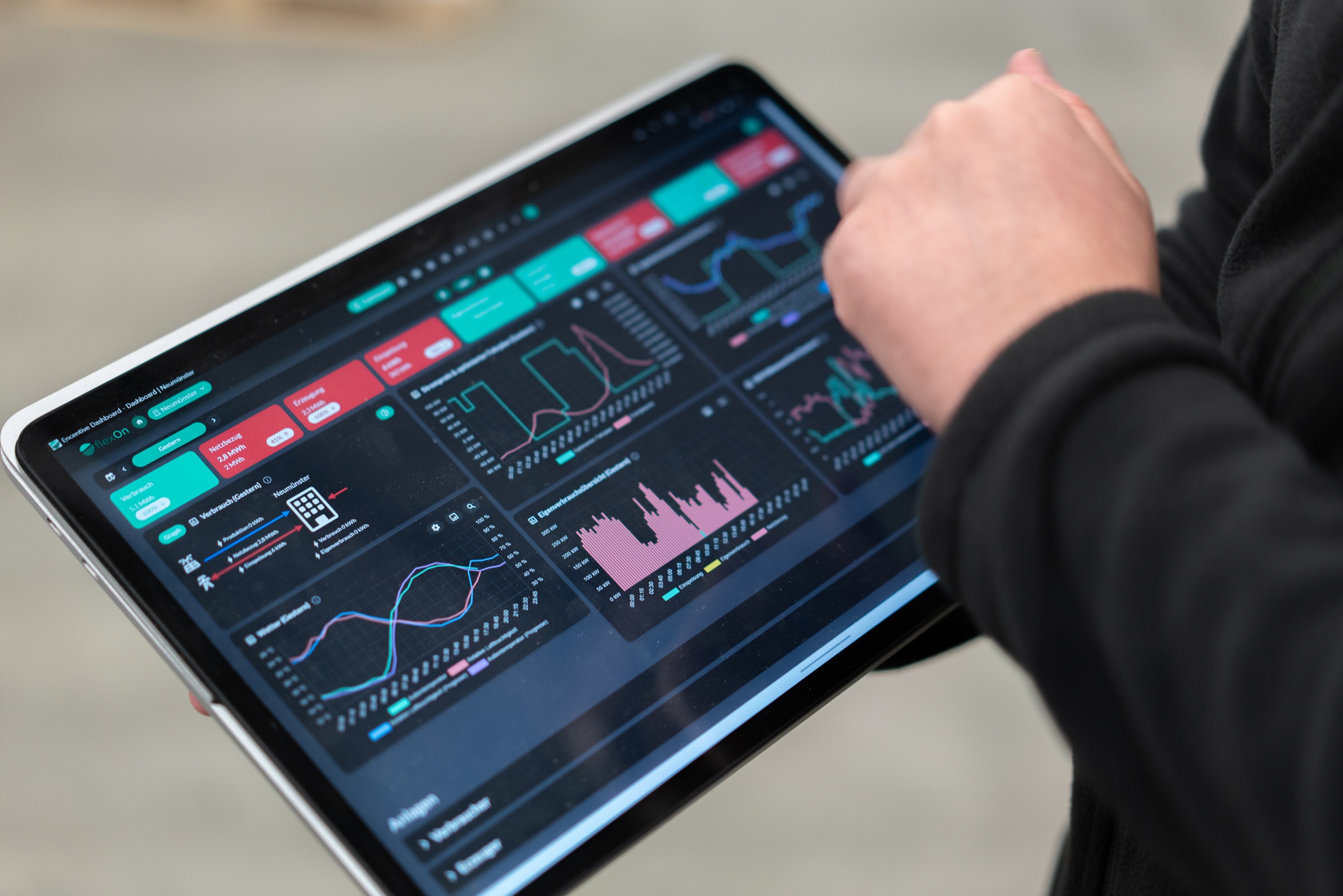Effects of the technical error on the spot market
The day before last Wednesday, there were horrendous electricity prices on the electricity exchange due to a technical error. This was expensive for some industrial companies — our customers were protected by intelligent energy management.
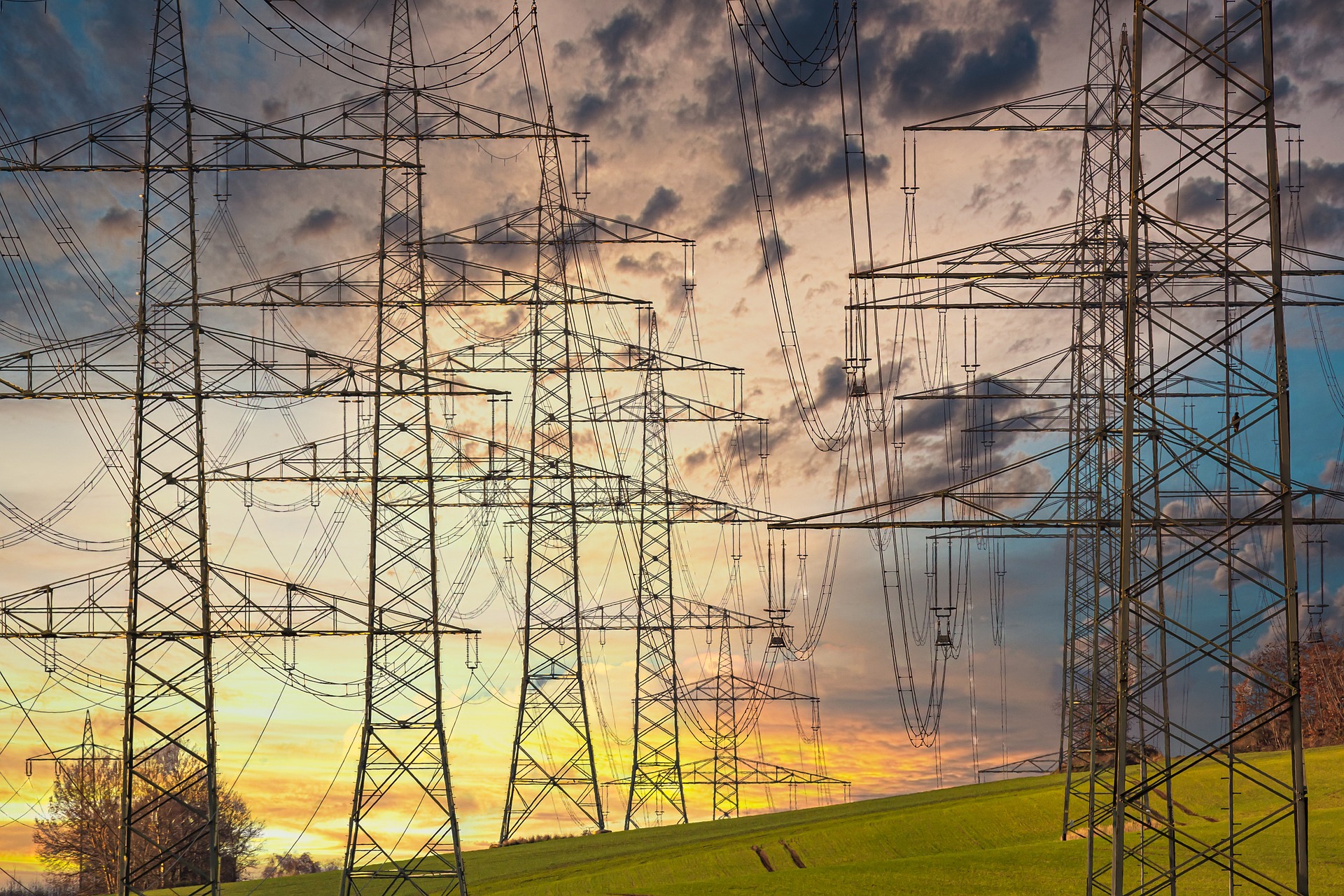
The cause of the electricity price explosion
According to experts, the failure at the European Epex Spot Stock Exchange meant that there was no market coupling (Handelsblatt, 2024). For this reason, a separate auction was held on the day-ahead market in Germany, Austria, France and other European countries. This is similar to the situation that would occur if Germany had to supply itself completely with electricity and did not receive any electricity imports from neighboring countries. As a result, the price rose to over 2000€ per megawatt hour during the usual peak times at 6 o'clock in the morning and 20:00 in the evening.
Steelworks must stop production
The case was heavily discussed by people interested in energy markets on social media such as LinkedIn. Some advocates of static electricity tariffs argued that end and large consumers with dynamic electricity tariffs would now feel the disadvantage of this system. An example of the effects was provided by a Feralpi Group steel plant near Dresden. It had to stop production because otherwise it would have paid seven-figure energy costs. By contrast, the damage caused by the production shutdown was “only” in the six-figure range (Berliner Zeitung, 2024).
Customer saves 1,070€ through smart energy management
Our customers were protected thanks to flexOn's smart energy management. For customers who are connected to the spot market, flexOn registered the high electricity prices at peak times through AI-based data analysis and controlled electricity consumption accordingly. The picture shows, for example, the consumption of a customer with a chiller. In this case, it was used as an energy storage device, so to speak: flexOn cooled it down significantly outside peak times so that consumption could be reduced during peak times. The limit parameters specified by the customer were met. In the period of 4-8 in the morning and 19-23 in the evening alone, this customer saved 1,070€ through smart energy management, which corresponds to a saving of 36.8%.
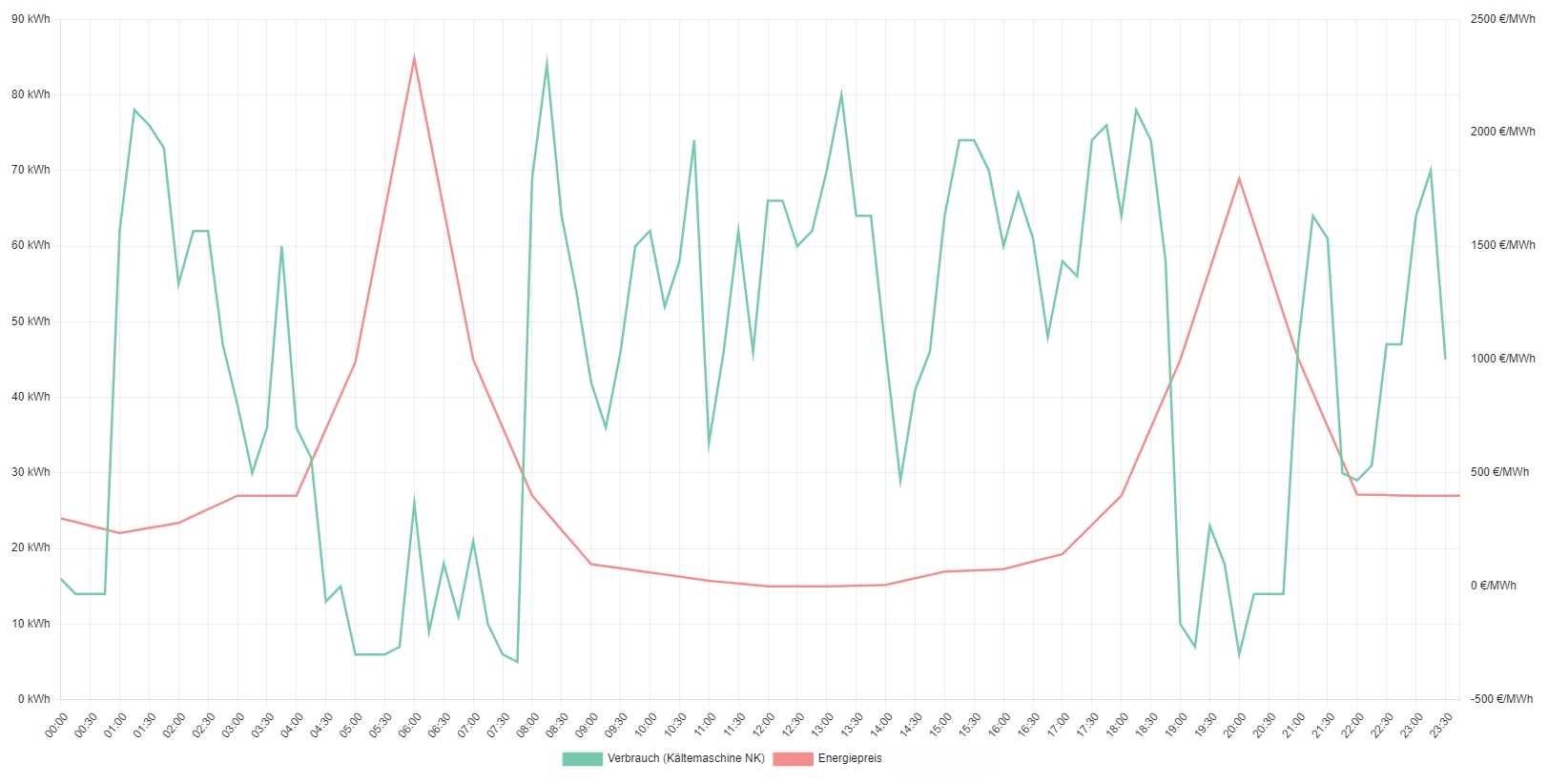
For other customers with solar systems or energy storage systems, smart energy management switched consumption to in-house production or storage, so that industrial companies purchased little electricity from the spot market at peak times.
Resilient through smart energy management
This example clearly shows: smart energy management automated control is the right way for companies to become resilient and independent without having to invest large sums of money in storage. Even though the technical error was a special case, extreme price fluctuations are no longer an isolated case. Through automated, smart energy management, industrial companies benefit from volatility of prices and are covered in high-price phases.




.png)
